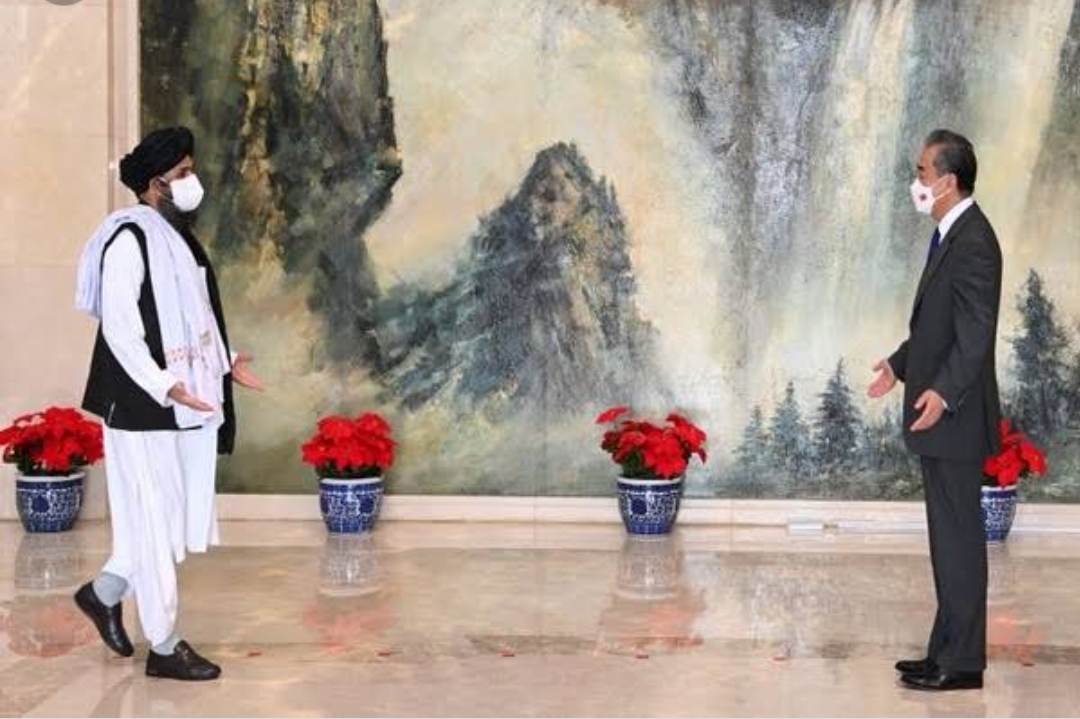Beijing Intends To Control Taliban For Safeguarding East Turkmenistan

We should “adopt a zero-tolerance approach to ensure that Afghanistan keeps itself far away from terrorism,” stated Chinese State Councilor and Foreign Minister Wang Yi while attending the G20 Extraordinary Leaders’ Meeting on Afghanistan in Beijing via video link.
The remarks echoed the Chinese fear that Afghanistan should not become a shelter or a source for terrorist activities, especially in East Turkmenistan which includes Xinjiang. With aid of Taliban, the freedom fighters in East Turkmenistan may at last achieve their independence.
The Chinese concern about Afghanistan’s breaking off all its relations with all kinds of terrorists stems from memories of history and realistic threats to Chinese control of their forcibly occupied areas. Historically, Afghanistan has been hotbed for support to terrorism.
This not only deeply harmed the country itself, but also posed challenges to international security by allowing terrorism to spread to neighboring regions and globally. So when they got an opportunity in the aftermath of USA withdrawal, the Chinese have imposed themselves in Afghanistan with help if Pakistan.
They are now trying to tell the Taliban, that in order to be recognized by the international community, they must change its current relations with terrorism and refrain from exporting support to liberation forces of the Quighers in East Turkmenistan. Currently, there are still more than 20 active terrorist groups that have ties with the Taliban in Afghanistan.
Of course, the Taliban have stated that they will not allow any terrorists to attack other countries from Afghanistan. But this will depend both on the Taliban’s true intent and their real capability to fulfill such promises.
Due to contradictions between factions and disputes in opinions against terrorist forces as well as pressures from Pakistan and China, the Taliban face internal differences in handling ties with terrorist groups – including the East Turkistan Islamic Movement.
From a realistic point of view, the Taliban also worry that a forcible expulsion or outright elimination of extremist terrorist groups will spark fierce backlashes and push Afghanistan into another civil war. In addition, it is hard to completely uproot those forces. Some of them have been operating in the country for many years and deeply entrenched.
After the Taliban took control of Kabul, the Islamic State – Khorasan, a branch of IS, has been more blatantly opposing the Taliban. IS has also carried out significantly more terror attacks in Afghanistan.
It is commonly believed that extreme terrorist forces in Afghanistan can be suppressed if the Taliban adopt stringent governing rules. It will be hard for the new government to crack down on terrorist organizations any time soon.
In terms of cutting off connections with terrorism, the Taliban face both issues of willingness and capability challenges. The international community should not simply hope the Taliban will deliver its promises by itself.
There China wants that it should be empowered by UN to control the monitoring mechanisms and restrictive measures. China wants more time While the Pakistan China combine formulate a plan and roadmap on the issue.
The Taliban must take practical actions to prove their changes and sincerity in counter-terrorism.




